The 90-minute town hall featured some fiery questions on abortion, taxes, vaccines, and education funding
VANCOUVER — About a hundred people spent part of a beautiful Saturday morning inside the lecture hall at the Dengerink Administration Building on the campus of Washington State University Vancouver. They were there to hear from, and speak to, their 17th District state legislators.
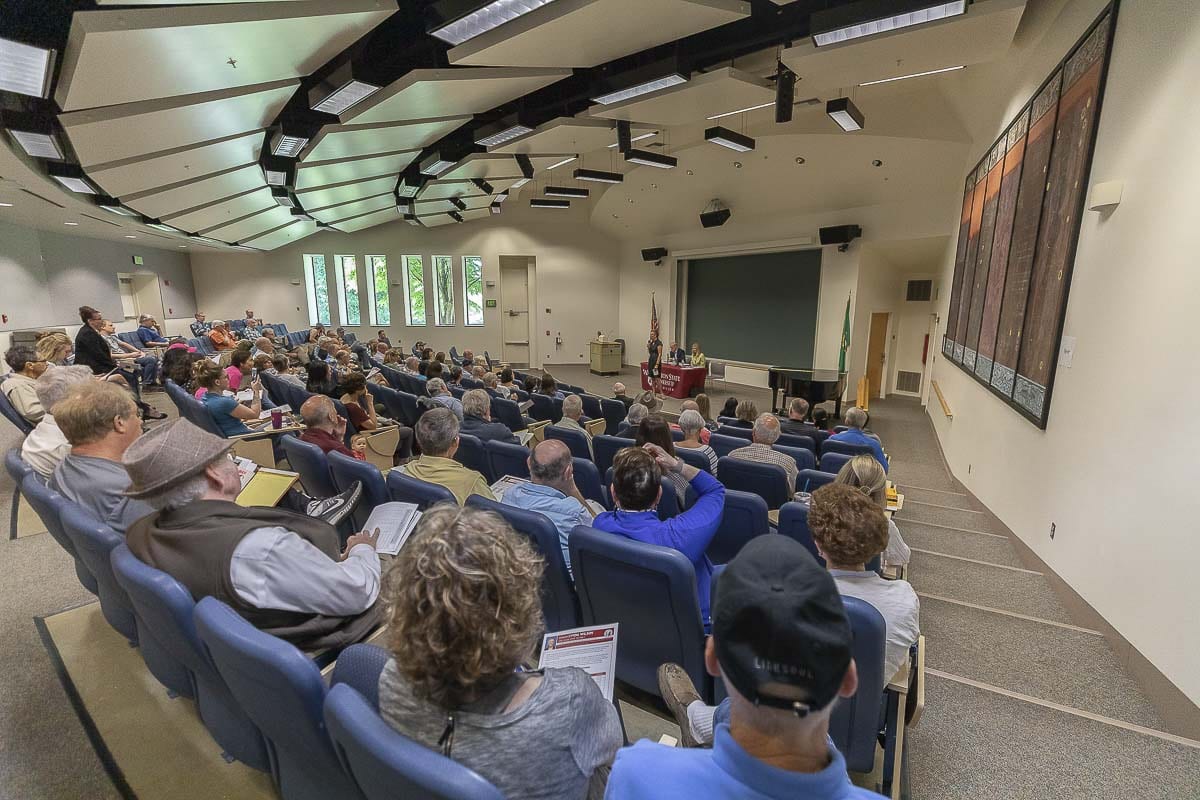
The three Republicans spent 90 minutes being peppered with questions on such weighty topics as vaccines, abortion rights, education funding, taxes and more. The 17th District covers much of central Clark County, from North Vancouver up to Battle Ground. It is largely considered to be the most middle-of-the-road district in the county, politically speaking, and that division was well represented in the lecture hall, with attendees clapping, and then clapping back at each other over some of the topics.
On the issue of vaccines, the lawmakers themselves were divided. Rep. Paul Harris, who has been in Olympia since 2010, introduced legislation that ultimately passed, eliminating the personal and philosophical exemptions for the MMR vaccine. A student asked Harris if he intended to take away the choice of anyone else in future sessions.
“I never dreamed, when I went into session, of doing a vaccine bill,” said Harris, “wasn’t even on my radar. I felt my community had 74 cases, I was approached to do it, I don’t have a bet on vaccines, which is interesting.”
Harris said he did receive death threats during the process of the vaccine bill, to which someone opposed to vaccines in the audience replied “so did we.”
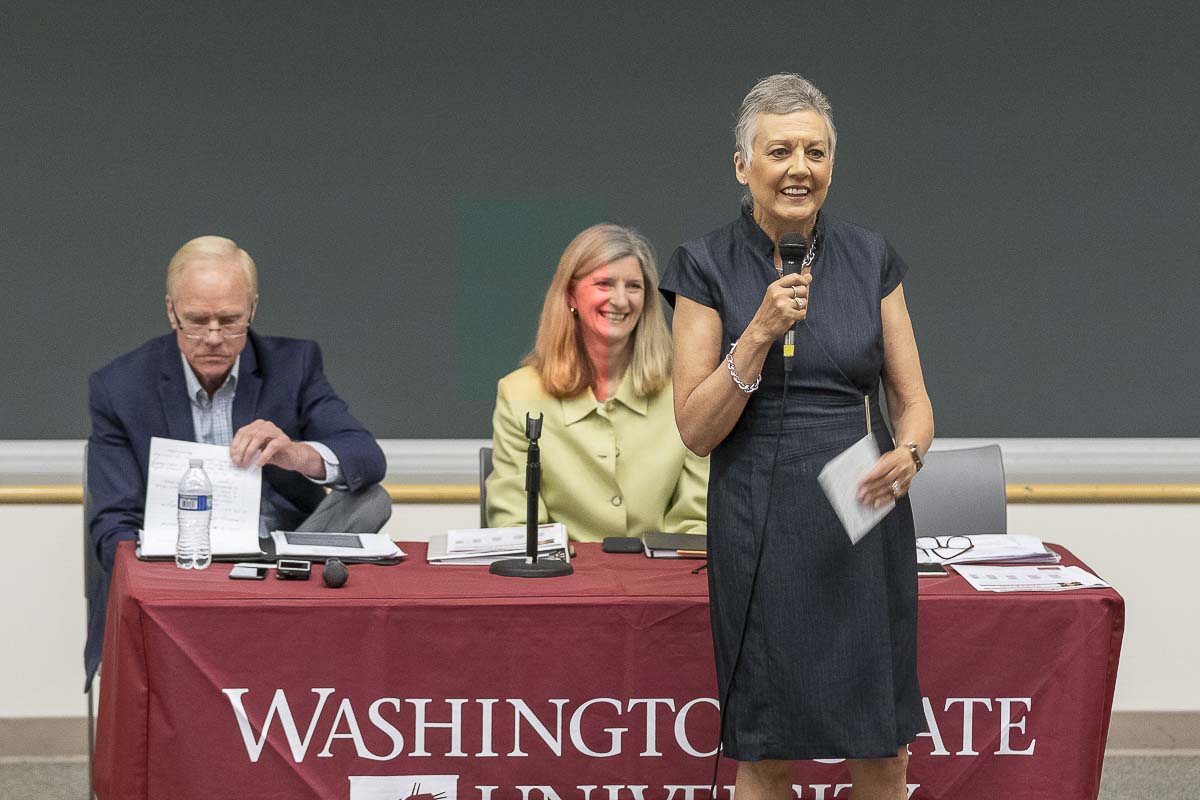
Both fellow Rep. Vicki Kraft, who is in her second term, and Sen. Lynda Wilson said they voted against the vaccine bill. Wilson expressed personal support for vaccinations, but both she and Kraft said they believed that there was a rush to pass legislation based on faulty data about how many children are actually being vaccinated. Harris said, in his view, this is about protecting children who are immune compromised, or can’t receive a vaccine, but he added he has no plans to seek any further vaccine exemption changes beyond the MMR vaccine, and will not attempt to reverse the religious exemption for any vaccines.
In another part of the meeting, Kraft took heat for co-sponsoring a bill to ban abortions in Washington state, similar to a controversial bill recently passed in the state of Georgia. The bill didn’t make it out of committee, and Kraft told a survivor of rape that she knew it wouldn’t get through the heavy Democrat majority in both the House and Senate.
“Because I believe it’s important to have a dialogue,” said Kraft. “I come at it from a different perspective as one who was adopted.”
Pressed on whether she would force a mother to give birth to a child against her wishes, Kraft finally responded “here’s the thing, that baby in the womb has no choice.”
Education funding was another hot topic. Harris sat on the Education Committee and helped craft the legislation that ended up being the funding fix to end the McCleary Supreme Court case. He said the state has poured in close to $10 billion in additional funding for basic education in just the past four years. Despite that, districts across the state are looking at budget cuts to make ends meet going into next year.
“Today, education almost represents 53 percent of our budget in the state of Washington,” said Harris, while admitting that the state needs to do a better job of tracking how school districts are spending their money.
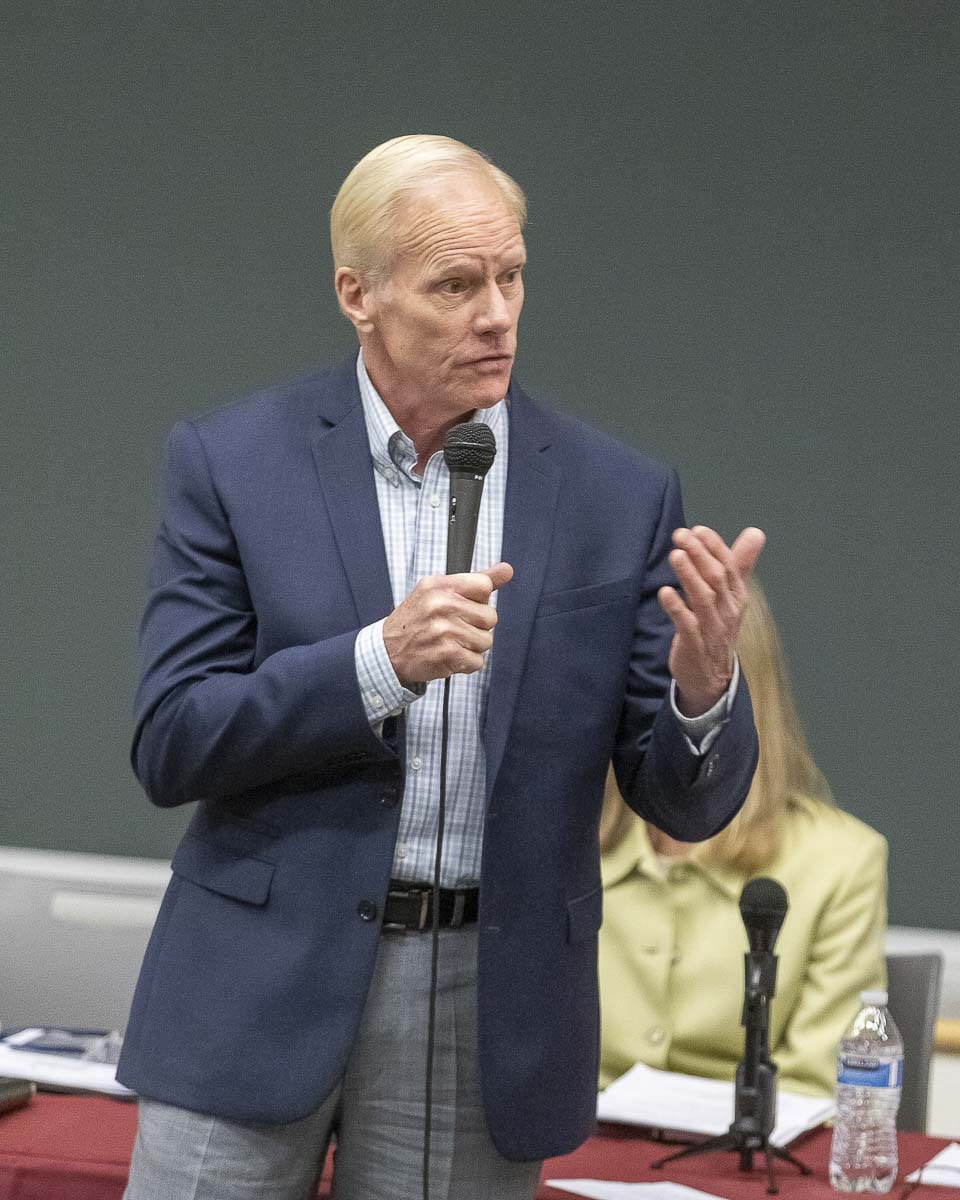
“We drive out about $67,500 per teacher, on average,” he added. “We now fund $16,000 per student in the classroom.”
The legislature passed a bill this year that will increase the maximum local levy amount schools can raise to $2.50 per $1,000 of assessed value, up from the previous cap of $1.50 per $1,000. The law did come with greater restrictions on what schools can do with that money, but the 17th District lawmakers each said they worry this will lead to a repeat of McCleary in a few years, which raised the debate that school districts in wealthier areas had access to much more funding than poor school districts.
“Quite frankly, many of the school districts bargained away their funding for teacher salaries,” said Wilson.
The education funding question led into a few on property taxes, and whether there is any discussion in Olympia about how much more of the state budget can be put on the shoulders of homeowners.
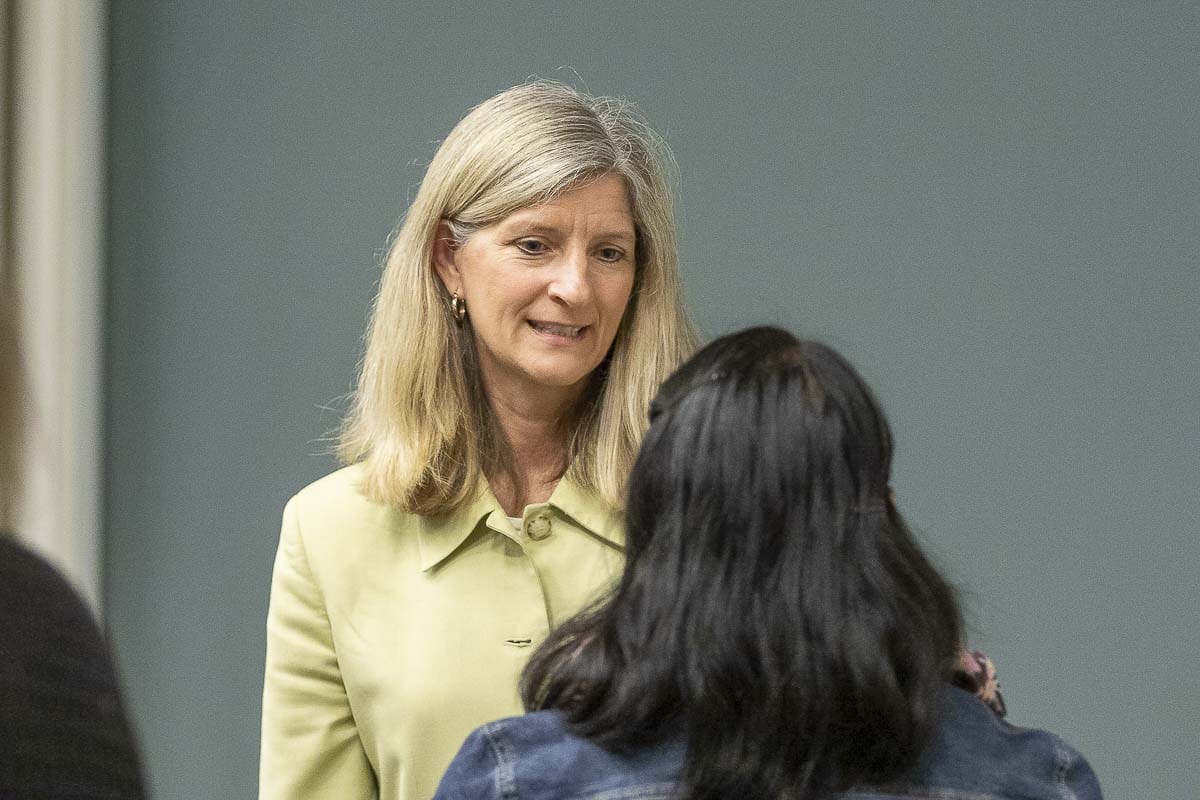
“To be quite frank, you sit in a room, and we all voted no up here,” said Harris, “but once you’ve taken the money out of your property tax it’s really hard for government to say ‘we’re going to give it back to you.’ And we should have. I wanted to give it back to you, and I still do because I believe it’s the right thing to do. We talk about affordable housing, OK? The more we hit property taxes, the less affordable your home becomes.”
Wilson, who sported a shorter haircut due to recent chemotherapy treatments for breast cancer, thanked everyone for their support during her battle.
“I’m not completely done yet, I have another surgery scheduled here in about 10 days,” said the Senator, “but other than that I feel great.”
Wilson’s “cancer journey” as she dubbed it, led her to introduce legislation that was ultimately approved allowing hunters in Washington state to wear a hot pink color while hunting. Previously only orange was allowed. She said her husband and daughters like to wear the pink as a form of solidarity with her and millions of other women battling breast cancer across America.
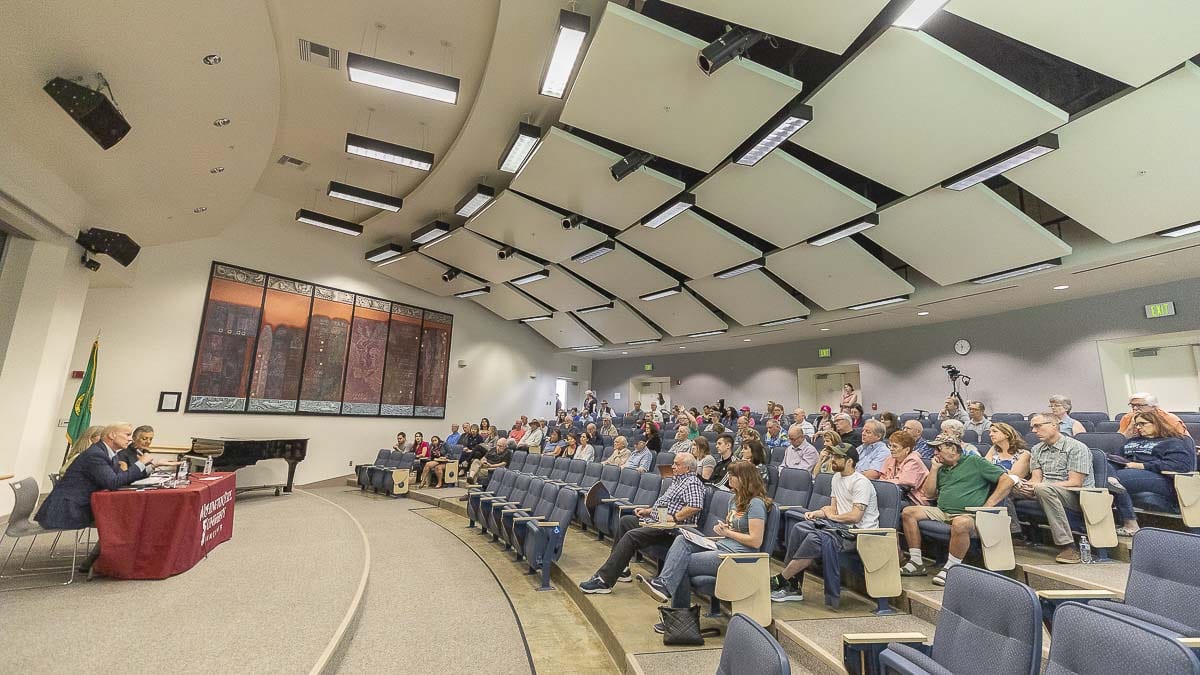
Harris spoke of his Tobacco 21 bill, which passed, increasing the age requirement for tobacco and vaping products in Washington from 18 to 21. He also spent time as the Republican Caucus chair, meaning he had to give up his committee leadership positions. Harris said he may choose to give up the leadership position next year to return to the law writing side of things.
Kraft had a tougher time getting bills through committee. Her bill to increase punishment for sex trafficking crimes stalled, but she said her plan is to push it again next session. Despite the difficulty getting legislation through, Kraft said she has enjoyed her third session, even with the frustration of being in the minority in both houses.




